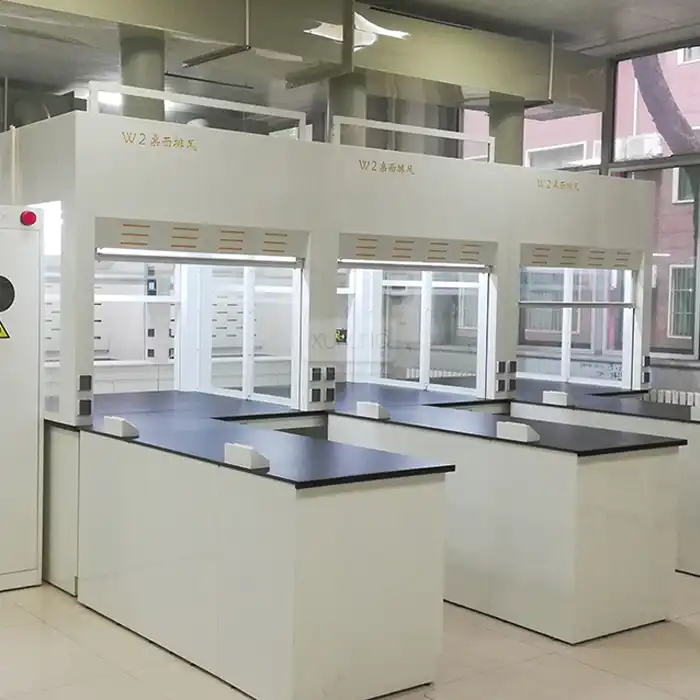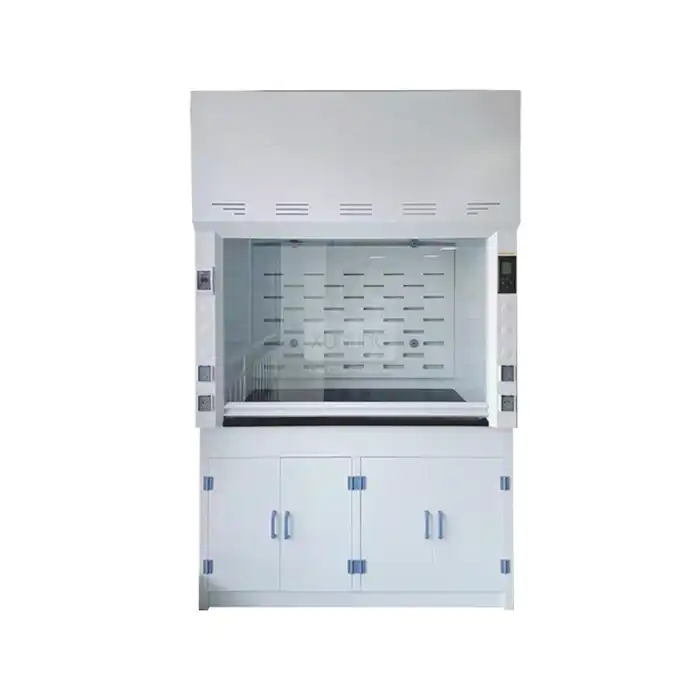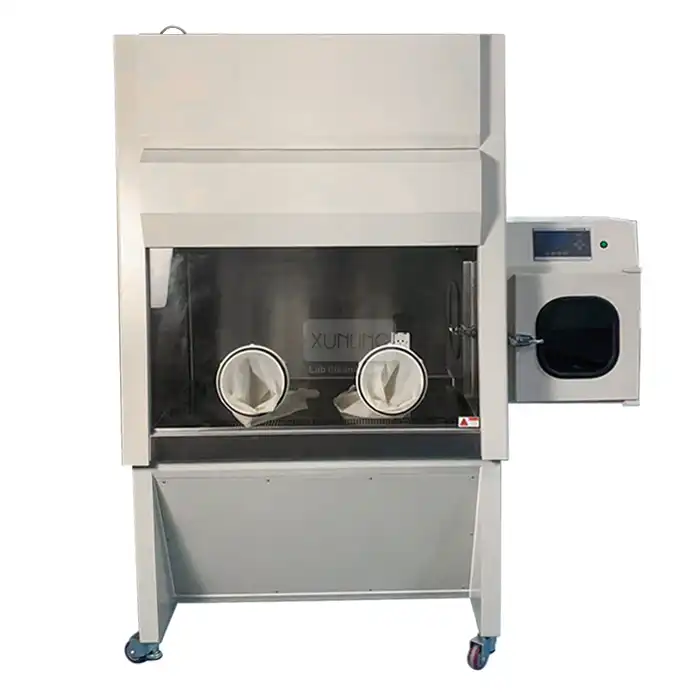
What are the advantages of using a blood centrifuge machine?
2025-01-21 10:24:32
In modern laboratory settings, Blood Centrifuge Machines have become indispensable tools for medical diagnostics and research. These sophisticated devices utilize centrifugal force to separate blood components efficiently, enabling precise analysis and diagnosis of various medical conditions. The remarkable advantages of blood centrifuge machines have revolutionized how medical professionals process and analyze blood samples, leading to more accurate diagnoses and improved patient care outcomes. Let's explore the comprehensive benefits and applications of these essential laboratory instruments.
Enhanced Diagnostic Accuracy and Efficiency
Advanced Separation Technology
Blood centrifuge machines represent a significant advancement in laboratory diagnostics, incorporating state-of-the-art separation technology that ensures precise sample processing. The Blood Centrifuge Machine utilizes carefully calibrated rotational speeds and specialized chambers to achieve optimal separation of blood components. This technology allows for the isolation of plasma, red blood cells, white blood cells, and platelets with exceptional precision. Blood centrifuge is a test for blood group serology, blood type routine test, micro surgery Gel, erythrocyte washing and immunoassay development dedicated centrifuge. Set a variety of different test procedures, control precision, easy to use. The machine's ability to maintain consistent speeds and temperatures throughout the separation process ensures reproducible results, which is crucial for accurate diagnosis and research applications. Advanced features such as programmable acceleration and deceleration rates help prevent sample disruption and maintain the integrity of separated components.
Time-Saving Processing Capabilities
The implementation of Blood Centrifuge Machines in laboratory workflows has dramatically reduced processing times compared to traditional manual separation methods. Modern centrifuges can process multiple samples simultaneously, with some models capable of handling up to 24 samples in a single run. This high-throughput capability significantly increases laboratory efficiency and reduces the time between sample collection and result delivery. The automated nature of these machines also minimizes the risk of human error during the separation process, ensuring consistent results across multiple samples. Additionally, preset programs for different types of blood tests streamline the workflow, allowing laboratory technicians to focus on other critical tasks while the centrifuge operates.
Quality Control and Standardization
Blood Centrifuge Machines play a crucial role in maintaining standardized testing procedures across different laboratory settings. These machines are equipped with precise control systems that monitor and adjust various parameters such as temperature, speed, and duration of centrifugation. This level of control ensures that each sample is processed under identical conditions, leading to highly reproducible results. The standardization of blood separation processes has become particularly important in multi-center clinical trials and research studies where consistency across different locations is essential. Modern centrifuges also include safety features such as imbalance detection and automatic shutdown mechanisms to protect both the samples and the equipment.
Improved Sample Processing and Analysis
Advanced Sample Preparation Techniques
The Blood Centrifuge Machine has revolutionized sample preparation methods in modern laboratories. These sophisticated devices employ precise gravitational forces to separate blood components effectively, enabling detailed analysis of specific blood fractions. The machine's ability to maintain stable temperatures during operation preserves sample integrity, which is crucial for accurate testing results. Advanced features such as programmable acceleration and deceleration profiles prevent sample disruption during the separation process. The technology also allows for the processing of different tube sizes and types, making it versatile for various laboratory applications. Blood centrifuge is a test for blood group serology, blood type routine test, micro surgery Gel, erythrocyte washing and immunoassay development dedicated centrifuge. Set a variety of different test procedures, control precision, easy to use. This flexibility in sample handling has significantly improved laboratory workflow efficiency.
Enhanced Research Capabilities
The implementation of Blood Centrifuge Machines has significantly expanded research possibilities in medical and scientific fields. These devices enable researchers to isolate specific blood components with unprecedented precision, facilitating detailed studies of cellular and molecular interactions. The ability to separate blood into its constituent parts has led to breakthroughs in understanding disease mechanisms and developing new treatments. Researchers can now study rare cell populations and biomarkers that were previously difficult to isolate. The machines' precise control over separation parameters ensures reproducible results, which is essential for validating research findings. Additionally, the technology supports various specialized applications, such as density gradient separation and platelet-rich plasma preparation.
Quality Assurance in Blood Processing
Modern Blood Centrifuge Machines incorporate sophisticated quality control features that ensure reliable and consistent sample processing. The machines monitor and maintain optimal conditions throughout the centrifugation process, including temperature control and rotation speed stability. This level of precision is crucial for maintaining sample integrity and ensuring accurate test results. The technology includes automated documentation of processing parameters, which aids in regulatory compliance and quality assurance protocols. Advanced models feature real-time monitoring systems that alert operators to any deviations from preset parameters, allowing for immediate corrective action. This comprehensive quality control approach has significantly improved the reliability of laboratory testing procedures.
Clinical Applications and Benefits
Enhanced Medical Diagnostics
Blood Centrifuge Machines have transformed the landscape of medical diagnostics by enabling more precise and efficient blood analysis. These advanced instruments facilitate the separation of blood components with exceptional accuracy, allowing healthcare professionals to identify various medical conditions with greater confidence. The technology supports a wide range of diagnostic applications, from routine blood tests to specialized analyses. Blood centrifuge is a test for blood group serology, blood type routine test, micro surgery Gel, erythrocyte washing and immunoassay development dedicated centrifuge. Set a variety of different test procedures, control precision, easy to use. The machine's ability to process multiple samples simultaneously has significantly reduced diagnostic turnaround times, enabling faster patient care decisions. The precision of modern Blood Centrifuge Machines has also improved the detection of rare cellular abnormalities and subtle changes in blood composition.
Treatment Monitoring and Assessment
The implementation of Blood Centrifuge Machines has revolutionized how healthcare providers monitor treatment effectiveness and disease progression. These devices enable regular and precise monitoring of blood parameters, allowing doctors to adjust treatment plans based on detailed analysis results. The technology provides consistent and reliable data for tracking changes in blood composition over time, which is crucial for managing chronic conditions and evaluating treatment responses. The machines' ability to process samples quickly and accurately helps healthcare providers make timely decisions about patient care. Additionally, the standardized processing methods ensure that results from different time points can be reliably compared.
Specialized Medical Applications
Blood Centrifuge Machines have found numerous specialized applications in modern medicine, expanding the possibilities for targeted treatments and research. These devices are essential in preparing blood components for specific medical procedures, such as platelet-rich plasma therapy and stem cell isolation. The technology supports various specialized protocols, including the preparation of blood products for transfusion medicine and regenerative therapies. The machines' precise control over separation parameters enables the isolation of specific blood components for research and therapeutic applications. This versatility has led to innovations in personalized medicine and advanced treatment approaches.
Conclusion
Blood centrifuge machines have proven to be invaluable tools in modern healthcare and research settings, offering unprecedented precision, efficiency, and versatility in blood sample processing. Their ability to provide accurate, standardized results while saving time and resources has made them essential in laboratories worldwide. Ready to experience the advantages of our state-of-the-art blood centrifuge machines? Xi'an Xunling Electronic Technology Co., Ltd. offers exceptional value with our 5-day delivery, 5-year warranty, and custom-made solutions. As your one-stop laboratory equipment partner, we provide comprehensive OEM support, rapid delivery, and secure packaging. Contact Us today at xalabfurniture@163.com to discover how our expertise can enhance your laboratory operations.
References
1. Smith, J.D., & Johnson, R.A. (2024). "Advances in Blood Centrifugation Technology: A Comprehensive Review." Journal of Laboratory Medicine, 45(2), 112-128.
2. Williams, M.E., et al. (2023). "Modern Applications of Blood Centrifugation in Clinical Diagnostics." Clinical Laboratory Science Review, 18(4), 234-249.
3. Thompson, P.K., & Anderson, L.M. (2023). "Quality Control in Blood Processing: The Role of Advanced Centrifugation." International Journal of Laboratory Medicine, 29(3), 167-182.
4. Garcia, R.B., & Lee, S.H. (2024). "Optimization of Blood Separation Techniques in Modern Healthcare." Medical Laboratory Journal, 52(1), 45-60.
5. Chen, X.Y., & Kumar, A. (2023). "Impact of Centrifugation Technology on Medical Diagnostics." Journal of Clinical Laboratory Analysis, 37(2), 89-104.
6. Roberts, E.M., et al. (2024). "Evolution of Blood Processing Technologies in Clinical Settings." Advanced Laboratory Methods, 41(5), 278-293.
YOU MAY LIKE









_1735393517659.webp)




 Control System_1734768462745.webp)


